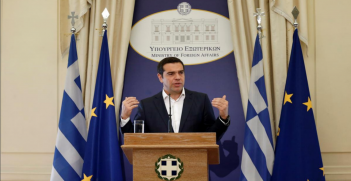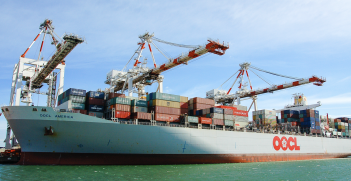The TPP and Transparency

In last week’s “Outlook”, international trade analyst Alan Oxley argued that the Trans Pacific Partnership could be the precursor to an expanded APEC trade agreement, including, potentially, 24 member nations. Yet, there are still questions to be answered about the TPP negotiations…..
Transparency is a fundamental tenet of a liberal democracy, yet while secrecy during trade negotiations is common, none have been as secret or as important as the TPP.
Our democracy is built upon a relationship between voters and elected politicians, which at its most basic is predicated on a series of promises, values, policies and ideologies that form the bedrock of a politician’s electoral platform and which, with some exceptions, guide the voter’s. Two fundamental components are required to make this relationship successful – accountability and transparency. Accountability occurs through the independent judicial system and periodic elections. Transparency is the distribution of decisions, documents and actions from those involved to the general public in a manner that is both accessible and accurate. Without transparency we are unable to hold our politicians accountable, without transparency our democratic system is unaccountable.
Few issues of such significance challenge this relationship as completely as international trade. Few of us understand trade politics, few of us care to understand trade politics, and even fewer politicians are able to both understand trade politics and communicate it to voters in a manner that is not sleep inducing. This means that our ability to engage with international trade is severely reduced, and our capacity to hold politicians accountable for trade decisions minimal. Further exacerbating this lack of accountability is the high level secrecy surrounding the creation of most of Australia’s 1800 trade agreements. Which are generally developed under the exclusive eyes of diplomats, politicians, international bodies and multi-national corporations.
The Trans Pacific Partnership (TPP), the world’s biggest trade deal spanning 12 countries and covering 40% of the world’s economy, has been developed under unprecedented secrecy and will alter the foundations of Australian democracy. Much of what is known about the TPP has come via a WikiLeaks cable that detailed a number of controversial components that will erode national legislative powers and oversight in areas including financial regulation, costs and access of medicine, labour rights, environmental regulation and food safety. Most controversially, the TPP will introduce an Investor State Disputes Settlement (ISDS) system which, far beyond that of other ISDS systems, will enable multi-national corporations to sue the government of a TPP member country for actions that harm that company’s interests. Regardless of any decision by an Australian Court, foreign courts or tribunals will be empowered to adjudicate on the legality of actions and policies of the Australian Government and impose substantial financial penalties on the taxpayer. Imagine food manufacturers suing Australia over health efforts or food safety legislation, alcohol companies suing Australia over advertising reform, or, as occurred in Germany, energy companies suing the Government for environmental regulations. In 2011 the Swedish energy company Vattenfall began a 1.4 billion Euro claim against Germany because of strict regulations constraining a proposed coal-fired power plant. Vattenfall was ultimately successful in their case and Germany was forced to withdraw the regulations.
Whilst Australia is already partner to 27 agreements that include ISDS provisions, the TPP empowers companies to stop legislation and exposes Australia to the might of US multi-national corporations with annual budgets larger than the gross domestic product of some countries. The power of US corporations is demonstrated by the Canadian example, who when joining the North American Free Trade Agreement (NAFTA) wanted an ISDS provision to protect Canadian investors from judicial corruption in Mexico. However, since NAFTA has come into affect, Canada has been sued almost 20 times and been forced to pay US corporations roughly US$158 million in compensation. Australia is currently in court with one multi-national corporation, Philip Morris. The cigarette company has used an obscure 1993 agreement between Hong Kong and Australia to challenge Australia’s effective cigarette plain packaging legislation. The proceedings have already cost Australian taxpayers millions of dollars and if Philip Morris is successful, Australia may be required to pay millions in compensation and reverse plain packaging legislation. This will in effect mean that Philip Morris had successfully written Australia’s cigarette packaging laws. Democratic alarm bells should now be ringing.
Unsurprisingly committed opposition to the TPP is found in all 12 countries. Trade unions, environmentalists, consumer advocacy bodies, health agencies and a range of other civil society groups have called on governments to improve transparency and stop negotiations until broader examination can occur. One prominent US critic, economist and Nobel Laureate Joseph Stiglitz, argues that the TPP will do little for ordinary citizens and has been driven by the desires and needs of large US corporations.
The TPP will come before the Australian Parliament within the next few weeks, and politicians will vote to support or oppose the agreement. However the vote will take place with one exception, there will be no debate, there will be no amendments, in fact Australia is not legally allowed to alter a single word of the agreement, we are either all in, or all out.
Trade agreements are frequently developed under secrecy, rarely though are they this transformative and this important. The unprecedented secrecy of the TPP has seriously limited the capacity for broader discussion about ISDS provisions. By expanding the capacity for powerful US multi-national corporations to stop and sue governments for policies that voters have electorally supported is deeply concerning and requires broader debate. The interruption of the relationship between voters and elected politicians by corporations, who avoid transparency and evade accountability, is a challenge to our democratic model. Voters don’t often engage with international trade, it’s highly complex, secretive and boring, but rarely is it so important. Before the Australian Parliament votes yes or no to the TPP, we need to have an inclusive and engaging conversation, because once we’re in, we’re all in and there’s no going back.
Clancy Wright holds a Masters of International Relations and has been a political analyst and strategic advisor across the not-for-profit, public and private sectors. This article can be republished with attribution under a Creative Commons Licence.





